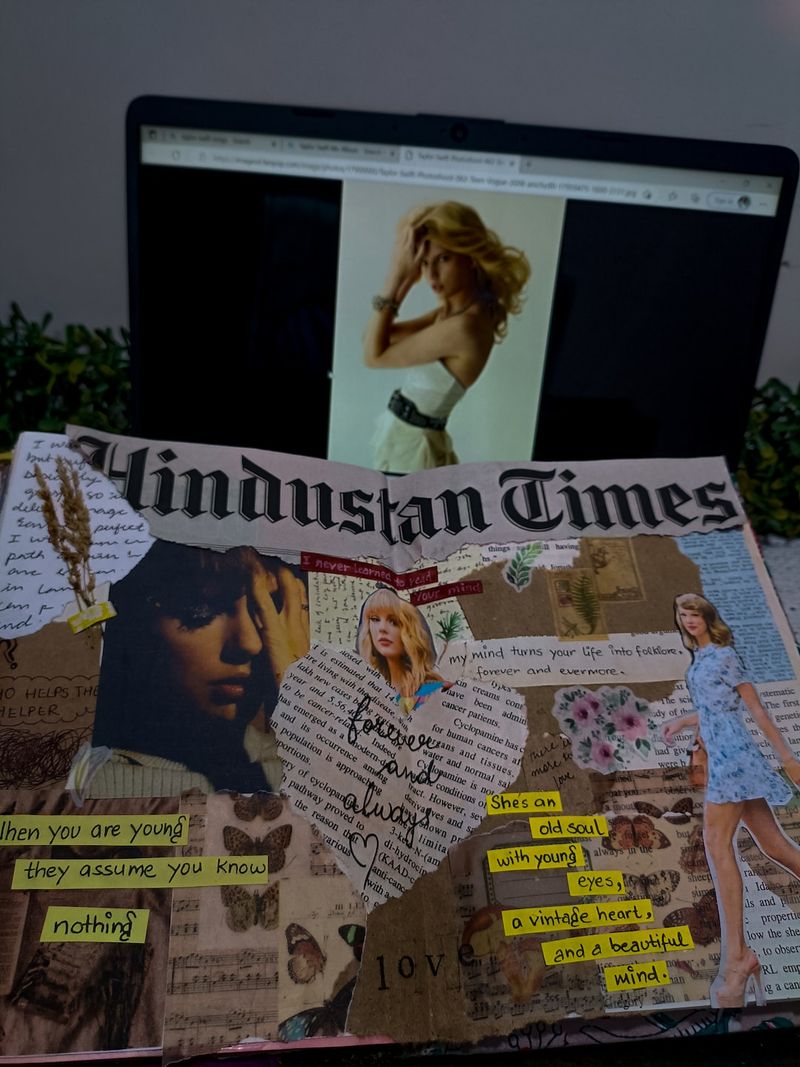Taylor Swift’s “Speak Now (Taylor’s Version)”: A Reflection on Music and Artistic Evolution
The Excitement Surrounding the Rerecorded Album
After much anticipation, Taylor Swift’s rerecord of her third studio album, “Speak Now (Taylor’s Version),” is set to drop on Friday at midnight Eastern time. This release marks the third album that Swift has decided to rerecord, following the highly successful reimaginations of “Fearless” and her self-titled debut album. The event has sparked excitement among Swift aficionados, eager to delve into the world of “Speak Now” once again, but with a fresh perspective.
To celebrate this momentous occasion, a live chat has been organized, inviting fans to discuss the album and share their favorite tracks. This collaborative atmosphere allows Swifties to engage in a meaningful conversation about the impact of Taylor Swift’s music, not only on themselves but also on the wider cultural landscape.
Reflecting on the Original Album’s Release
In order to truly appreciate the significance of this rerecording, it is crucial to reflect on the original release of “Speak Now” back in 2010. At the time, Taylor Swift was already a rising star in the music industry, known for her heartfelt storytelling and relatable lyrics. With “Speak Now,” she solidified her reputation as a talented songwriter and masterful performer.
The original album was a testament to Swift’s ability to capture the intricacies of human emotions and relationships. Tracks like “Dear John,” “Back to December,” and “Mean” showcased her maturity as an artist, diving into complex themes of heartbreak, regret, and resilience. Fans connected deeply with these songs, turning them into anthems that resonated well beyond the realm of traditional pop music.
The Significance of Rerecorded Albums
The decision to rerecord her earlier albums serves a dual purpose for Taylor Swift. Firstly, it allows her to regain control of her own music catalog, which was largely acquired by Scooter Braun’s Ithaca Holdings. By recreating her past works, she reclaims ownership and ensures that her artistic vision remains intact.
Secondly, rerecording these albums allows Swift to reflect on her artistic evolution and share a new perspective with her audience. As an artist, growth and change are inevitable, and revisiting past creations provides an opportunity for self-reflection. It’s a chance for Swift to showcase her growth as a songwriter, vocalist, and performer, while also offering fans a fresh experience with beloved songs.
The Question of Lyric Changes and Authenticity
One topic of speculation surrounding “Speak Now (Taylor’s Version)” is the possibility of lyric changes, particularly on songs like “Better Than Revenge.” This raises a broader question about the role of authenticity in music and the artist’s freedom to reinterpret their own work.
Artists, like any individual, evolve over time, and their perspectives may change. Rerecorded albums present an opportunity to update lyrics or incorporate new elements that align more closely with an artist’s current beliefs and values. While some may argue that this compromises the integrity of the original creations, it ultimately depends on the artist’s intentions and their desire to convey their truth in the present moment.
The Superiority of Rerecorded Albums
The question of whether rerecorded albums are better than their originals is subjective and open to individual interpretation. These rerecordings often invite listeners to engage in a comparative analysis, exploring the nuances between the two versions. While some may prefer the original recordings for sentimental reasons or the nostalgia they evoke, others may find themselves connecting more deeply to the rerecorded versions due to the artist’s growth and improved technical abilities.
Ultimately, the value and enjoyment of music lie in the personal connection between the listener and the artist’s creation. Both the original versions and the rerecordings have their place in music history, each offering a unique perspective on the artist’s journey and evolution.
Editorial: The Power of Artistic Agency
The rerecording of “Speak Now” by Taylor Swift not only demonstrates her resilience and determination but also emphasizes the importance of artistic agency. In an industry often characterized by complex power dynamics and contractual arrangements, artists like Swift who reclaim control of their music challenge traditional norms and reshape the landscape for future generations.
By rerecording her earlier works, Swift sends a powerful message of creative independence and the significance of owning one’s artistic legacy. This act serves as an inspiration for both established and emerging artists, highlighting the need to protect one’s own creative vision and ensure that it is preserved for future generations.
Artistic agency is not limited to music but extends to all forms of creative expression. It speaks to the fundamental human desire for autonomy and self-expression. By empowering artists to have control over their own creations, we create an environment where authenticity, growth, and artistic evolution can thrive.
Advice: Engaging with Artistic Evolution
As fans and consumers of art, engaging with an artist’s evolution can be both rewarding and challenging. It requires a willingness to embrace change and an openness to reinterpretation. Here are a few tips on how to navigate the journey of artistic evolution:
1. Approach with an open mind:
When encountering rerecorded albums or other artistic reinterpretations, approach them with an open mind. Allow yourself to immerse in the artist’s growth and embrace the fresh perspectives they bring to their work.
2. Embrace the journey:
Artists, like individuals, evolve and change. Embracing this journey allows us to appreciate the growth and depth that comes with experience. Engage with the body of work as a cohesive narrative, acknowledging the artist’s transformative process.
3. Respect the artist’s intentions:
Artists make choices based on their current beliefs, experiences, and artistic vision. While it is natural to form attachments to original creations, respect the artist’s right to reinterpret their work and convey their truth in the present moment.
4. Celebrate the dialogue:
Engaging in discussions and sharing different perspectives on an artist’s evolution can enrich the overall experience. Respectfully share your thoughts, listen to others, and celebrate the diversity of interpretations that arise from artistic evolution.
In conclusion, Taylor Swift’s rerecording of “Speak Now (Taylor’s Version)” is an event that invites reflection, discussion, and celebration of artistic agency and growth. Through this transformative act, not only does Swift reclaim ownership of her music, but she also presents an opportunity for fans to engage with her evolution as an artist. In a world that often seeks consistency and permanence, embracing artistic evolution allows us to honor the ever-evolving nature of human expression.

<< photo by JEEVANSHI GUPTA >>
The image is for illustrative purposes only and does not depict the actual situation.
You might want to read !
- Exploring Taylor Swift’s Highly Anticipated Speak Now Release Time: What Fans Should Know
- The Pop Phenomenon: Taylor Swift Sets Downtown Ablaze with Epic Night One Concert
- Falling for the “Swift Effect”: Analyzing the Declining Ticket Prices of Taylor Swift’s Shows
- “Exploring the Impact and Legacy of Bob Marley: A First Look at the One Love Biopic”
- “Exploring the Legacy of Bob Marley: A Sneak Peek at ‘Bob Marley: One Love’ Documentary”
- The Power of Celebrity: How a 12-Year-Old Fan’s Emotional Meeting with Karol G Highlights the Impact of Music Icons
- “Sexual Liberation and the Revival of Carrie Bradshaw: Exploring the Impact of ‘And Just Like That…’”
- Olivia Rodrigo’s ‘Vampire’ Takes a Bite Out of Pop Culture with Taylor Lautner’s Twilight Jokes
- “The Las Vegas Sphere: A Dazzling Fourth of July Debut”
- “The Future of Entertainment: Las Vegas Reveals Record-Breaking MSG Sphere”




